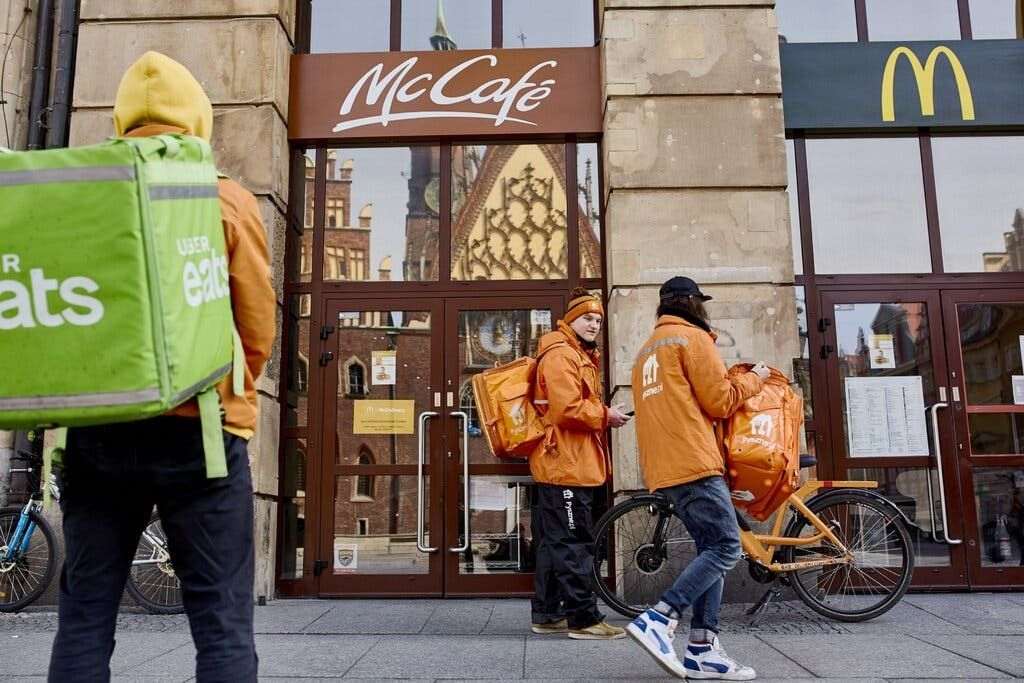The European Commission took a significant step forward on Thursday toward requiring ride-hailing and food-delivery services to treat their drivers and couriers as employees entitled to a minimum wage and legal protections, in what could be one of the most significant challenges yet to the labour practises of popular services like Uber and DoorDash.
In its proposal, the European Commission said that if implemented, the measures would impact up to 4.1 million individuals and would make the European Union one of the world’s tightest regulatory environments for the so-called gig economy. The proposal will fundamentally alter the connection that ride-hailing firms, food delivery services, and other platforms have with employees across the 27-nation bloc.
A number of labour unions and other supporters hailed the proposal, which has received widespread political support, as a significant step forward in the global effort to change the business practises of corporations that they claim are reliant on exploiting workers through low wages and lax labour protections.
In response to the regulations, Uber and other corporations are anticipated to push against them. The measures must pass through multiple parliamentary stages before they become law. Workers have long been classed as independent contractors by the corporations in order to keep expenses low and legal responsibilities to a minimum. Traveling across town and getting takeout were made easier as a result of the concept, which also allowed millions of individuals with a more flexible option to work whenever they wanted.
Although worker protection laws in Europe have traditionally been more robust than those in the United States, there has been growing momentum for change, particularly since the pandemic highlighted the precarious nature of gig work, as evidenced by the fact that food couriers and others continued to work despite lockdowns and an increase in Covid-19 cases.
While there have been some significant legal victories and laws passed in some countries that have targeted Uber and other companies, the policy released by the European Commission, the executive branch of the European Union, is the most far-reaching legislative attempt to regulate companies that has been undertaken to this point.
Those who utilise apps and online platforms to locate employment, such as drivers, couriers, house cleaners, home health care aides, fitness trainers, and others, will be impacted by the new laws. As workers, they would be entitled to a minimum salary, holiday pay, unemployment and health benefits, as well as other legal safeguards, which would vary based on the nation in which they were employed.
The European Union estimates that 28 million individuals in the union are employed via digital labour platforms, with the figure likely to climb to 43 million by 2025, according to the EU. According to the European Commission, 5.5 million workers are at danger of being misclassified, and up to 4.1 million of them might be reclassified as employees as a result of the regulation, which was issued on Thursday.
Those regulations are part of a bigger digital agenda that European Union officials plan to adopt in the next year. New antitrust laws targeting the biggest technology firms, harsher content moderation requirements for Facebook and other internet services to prevent illegal material, and new controls for the use of artificial intelligence are among the proposals.
The new labour regulations come in the wake of a historic judgement in February, in which the Supreme Court of the United Kingdom declared that Uber drivers should be categorised as employees entitled to a minimum salary and holiday pay. In the Netherlands, a court decided in September that Uber drivers should be compensated in accordance with the same collective agreements that govern taxi drivers in the country.
Companies would be required to reveal more information about how their software systems made choices that had an impact on their employees under the new European regulations. For people who choose to maintain their independence, the new laws would compel businesses to provide them with more autonomy, as self-employment involves.
According to Uber, the legislation poses a danger to the business models of the company and other platforms, such as the food delivery service Deliveroo, who are already struggling to make a profit. The European Union rule might result in billions of dollars in extra expenses, which are likely to be passed on to consumers, resulting in a reduction in the usage of mobile applications.
The regulations of the European Union are being extensively scrutinised as a possible model for other countries throughout the globe. In order to reach a settlement among various European nations and members of the European Parliament who disagree about how severe the laws should be, officials may have to negotiate until 2022 or beyond. It is doubtful that the legislation will go into force until 2024 or later.
A successful ballot campaign by gig economy businesses in California last year to retain drivers classed as independent contractors while providing them with minimal benefits was a resounding triumph. Despite the fact that a court decided in August that the outcome violated California’s Constitution, his judgement is now being challenged, and the firms are seeking legislation along the same lines in Massachusetts.
Policymakers in France, where the government has suggested enabling employees to elect union representation that would be able to bargain with corporations on matters such as salaries and benefits, are more appealing to the businesses there. Uber also cited Italy, where a large labour organisation and a food delivery company reached an agreement that ensures a minimum pay, insurance, and safety equipment while not classifying the workers as employees, as an example.
As a result of her participation in the drafting of a report on platform workers that was released this year, Green MEP Kim van Sparrentak commended the commission’s plan, calling it “very bold.”

